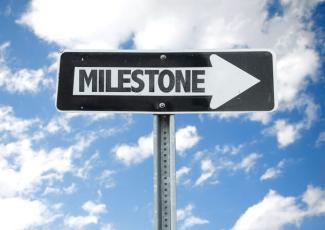
Your Big Retirement Milestones: 50s and 60s
As you are getting closer to retirement, your needs and goals might be changing. Many might also already have a retirement plan in action. Regardless of where you are on your financial journey, here are some of the big milestones that you will face in your 50's and 60's!
In Your 50s
Make a plan for long-term care
It’s estimated that 7 out of 10 people will require long-term care (LTC) at some point in their lives, so you'd be wise to plan how you can pay for it, should you need it. You could pay for it on your own or look into LTC insurance, which can help you pay for services generally not covered by Medicare. If you decide to go the LTC insurance route, your early 50s are a great time to start. The older you enroll, the higher your annual premiums will be.
Catch-up contribution eligibility begins at age 50
There are limits to how much you can contribute to your various retirement accounts each year. However, once you turn 50, the IRS allows you to contribute an additional amount on top of the existing limits, called “catch-up contributions." These get adjusted annually, so keep an eye out for them.
Early, penalty-free withdrawals from 401(k)s may begin at age 55
Under certain conditions, it's possible that you can start taking withdrawals from an employer-sponsored 401(k) account without incurring the 10% early withdrawal penalty fee. However, it would help if you retired in the year you turn 55, and you can only take these penalty-free withdrawals from a 401(k) account that's sponsored by the employer you're leaving. Additionally, it's only recommended that you start taking these withdrawals if absolutely necessary. Your advisor can help you devise a withdrawal strategy that works for you.
In Your 60s
Nail down your retirement plans
People typically retire in their 60s, so if this sounds like you, make sure you plan for it and set a date. Then, book that trip, spoil those grandkids, and do what makes you happy. You earned it.
Consider doing Roth conversions
After you retire but before you start drawing Social Security—and before required minimum distributions (RMDs) kick in—it can be an excellent time for Roth conversions. The thinking here is that you have less income after you retire, so you should be in a lower tax bracket and will be taxed less on your Roth conversion. Your financial advisor can help you determine if Roth conversions make sense for your situation, when, and how much.
Social Security eligibility begins at age 62
At this age, you can begin drawing from your Social Security benefit, albeit at a permanently reduced amount—monthly payments will be approximately 75% of your full benefit.
Medicare eligibility begins at age 65
This is when most Americans are eligible for Medicare. However, Medicare comes in four segments (Parts A, B, C, and D), so educate yourself on what you’re getting into and what you’re signing up for. You must also make some sort of election once you’re eligible for Medicare; if you don’t, you could be permanently penalized.


